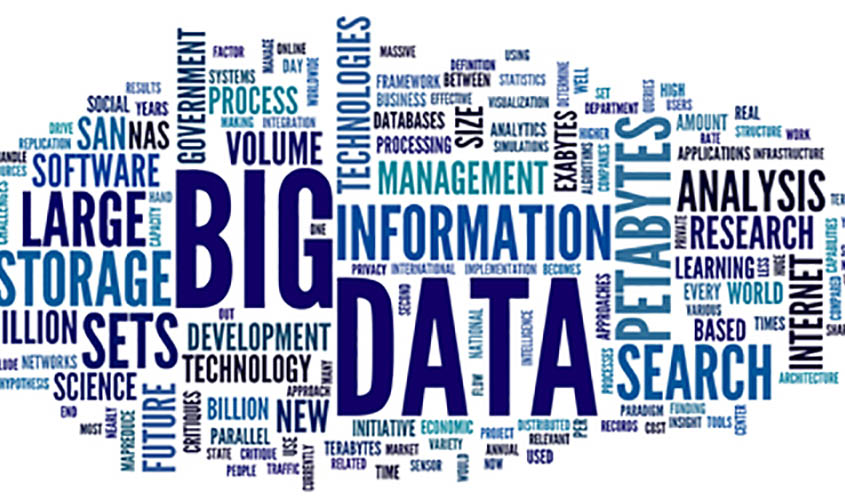When you log on to your social media account, do you ever think about what you are giving away to the provider, probably Facebook? You know of course what you are getting. Perhaps you are chatting with friends, or exchanging photos or videos. All for free. But why should a provider such as Facebook give you all this, apparently for nothing? Why should they spend literally millions, if not billions of dollars, running huge servers to allow you to send your photos to your friends for free? They don’t of course. Every time you search on Google, share on Facebook, buy on Amazon or interact with the internet in any way, these firms are collecting masses of information about you. They act as a humongous surveillance system, scooping up information on a huge scale. This is big data and when I say big data, I really mean BIG data.
I don’t want to bore you with computer technology, but data is collected and stored in basic units of information called bytes. Unimaginable numbers of bytes make up big data, now measured in terms of exabytes. To get a feel of what this means, consider that a byte is represented by 1mm. An exabyte would be 1 billion kilometres, or the distance from the earth to the sun and back nearly 4 times! Put another way, the letter A requires 1 byte of computer memory. Five exabytes would likely encompass all the words ever spoken by mankind, in any language! Get the idea? With hundreds of exobytes, companies have the ability to store almost an unlimited amount of information. Some say that they have a “God’s eye view” of everything going on in the world!
With all this data you’ve kindly donated to the provider, they can do lots with it by using analytics. Analytics is just a technique of getting meaningful patterns from data. For example, a business might use it for tracking and predicting the behaviour of its customers in order to improve its marketing or staffing levels. Banks can use it for predicting risk and therefore decision-making when deciding on loans. Firms can also follow how competitors are doing, perhaps buying out the competition before it threatens their own business. Some believe that this is why Facebook scooped up WhatsApp.
Depending on your point of view, much of this activity with big data is benign, simply making businesses more efficient, allowing directors and managers make better, more informed decisions. But how comfortable are you about your lack of privacy brought about by big data? By mining big data (yes, it is called data mining) companies can build up a detailed profile of you. Every aspect of your personality can be examined, whether you are outgoing, whether you are conscious of the environment, where you like to travel and so on. This is hugely valuable information to big data holders as they can sell on this information to those who wish to target us with their product advertising. Make no mistake, there is huge money to be made. Mined big data contributed to the $25billion net profit of Google, Amazon, Facebook, Apple and Microsoft (known as the Big Five) in the first quarter of this year alone!
Setting aside the security issues and subsequent responsibilities of those holding big data, which are substantial, there is a growing potentially nefarious side to big data which raised its head recently in politics; the role in influencing the outcomes of elections. Here’s an example. In UK’s recent European Union (EU) referendum, one of the issues was fishing. While in the EU, British fishermen do not have the exclusive use of waters around the UK for fishing; they have to obey EU rules. Those arguing for a withdrawal from the EU used big data to carry out a profile analysis of those in the fishing industry whom they believed could be influenced to “vote leave” and bombarded them with the appropriate advertising. Some believe that big data helped Donald Trump to become the US President. In June 2016, just five months before the election, Trump’s campaign team hired a British company, Cambridge Analytica, to advise them on identifying those voters around the US with concerns on specific issues. Having identified those groups, highly focussed “persuasive
So next time you search on Google, share on Facebook, buy on Amazon or use Microsoft or Apple software, pause and think how generous you are to these companies.
John Dobson worked in UK Prime Minister John Major’s Office between 1995 and 1998 and is presently a consultant in the private sector.

